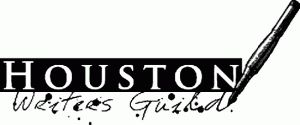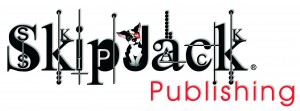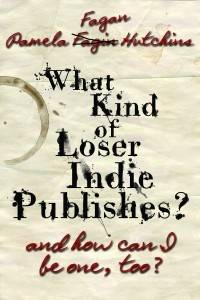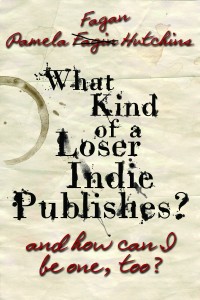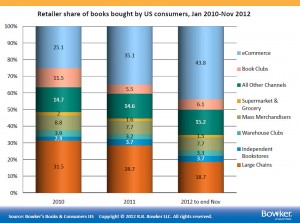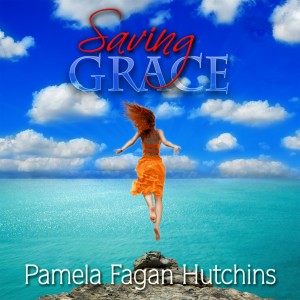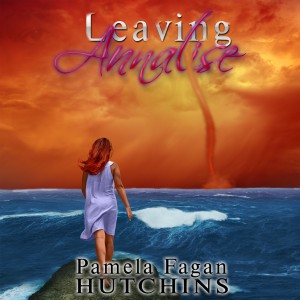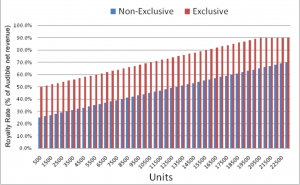
An adapted and unedited chapter from my upcoming SkipJack Publishing book (release date August 15, 2013) What kind of loser indie publishes, and how can I be one too?
Guess what? If you’re going to write books, you have to have a website. Period. Readers need a place to land to read about you and your books. It’s your online brochure. It toots your horn. It propels browsers to purchase, and points them to where.
Good news, though: it doesn’t have to cost a lot of money, be fancy, or require soul-crushing hours of upkeep. If you want a fancy, expensive, high maintenance website, knock yourself out, of course. In that case, you’ve got this post wired and can give it a brief skim. I’m talking to the rest of you, the ones that fear development of your own website like a plague of locusts. Or a zombie apocalypse. Or a run in your hose right before delivering a pitch to an editor from Random House.
Your website can be static, or you can populate it with updated content. A static website is a page, or a few pages, that stays the same except for periodic, planned updates. Websites with frequently updated content often feature a blog or a news ticker. I’ll speak to each, but first let’s talk about how a website is built.
Easiest way — hire someone to put one up for you! Ask them to do something simple and clean that requires little maintenance. Give them links to author/book websites you like, as examples. Draft the copy for the types of pages you want, and give it to the designer upfront, along with image/photo files for him to use. You should expect an interactive process with the designer that takes several months, and you should anticipate paying a fee for your domain name and for the work done by the designer.
To find a web designer, ask for referrals from your local writing group. Google (you knew I was going to say that, didn’t you?) for book or author website designers. Many author service providers offer website development. When you find someone, ask them for links to sites they have designed and the contact information for a few of their clients, preferably the ones for whom they did the websites they offer as samples. Contact the clients and verify they were satisfied with the quality, pace, price, and communication with the designer.
Expect the fee to range from $35 to $100 an hour. If they quote a flat fee, ask them what they base it on. Get samples, references, and quotes from several designers for comparison. Work with someone you feel will make the process less-than-torturous for you.
You will have a choice of whether to use a free or paid domain name. Free domain names usually have the web company’s name in them, i.e., http://HOTSHOTAUTHOR.blogspot.com, or http://HOTSHOTAUTHOR.wordpress.com. Paid domain names do not. Whichever you pick, try to brand either your name or book with your URL. For instance, my website is http://pamelahutchins.com. I am branding my name. If I had it to do over again, I’d choose pamelafaganhutchins.com, but at the time I worried that lazy browsers wouldn’t want to type all the extra keystrokes involved with “fagan” into my name. I made the same error on Facebook, by the way. But then I’m not claiming to be perfect. It’s like my parents always told me, “Do as I say, not as I do.”
I bought my URL from GoDaddy (http://godaddy.com). While I am not a big fan of their Super Bowl ads, they are a low cost provider, and their customer service is good. You pay an annual fee for your URL, and you should expect it to cost around $100. Sometimes more. If you buy a URL, you’ll have options for buying an email address that matches it. Hence my pamela@pamelahutchins.com. Again, it captures a brand, and it makes it easy for your readers to send you fan mail. Hey, I do get some now and then, really! GoDaddy’s site led me through instructions for my email, but it isn’t for the faint of technology-hearted. A web designer can help you with this element as well.
If you envision more than a static web page, your best and easiest bet is to set up a blog that runs either on your home (landing) page, or one of the other pages on your website. A designer can set this up for you. I believe in blogging, and I talked about some of the benefits of it earlier in Loser. It is a wonderful vehicle to use in building a following. It allows you to test-market your writing almost instantaneously. If you’re disciplined and set yourself up with an editorial calendar, it can multi-task your writing as you create posts that you will later use for books. It helps you build your website’s visibility with search engines, through targeted search engine optimization (SEO), which your web designer can help you with. Or which you can do yourself if you’re a brainiac.
I use a WordPress (http://wordpress.com) blogging platform. I used to use Google’s Blogger (http://blogger.com), but I migrated to WordPress and like it better. Both are fine. There are others. I liked WordPress so much that when it came time to upgrade my blog to a real website with a custom URL, I purchased a WordPress template to use with my GoDaddy site.
WordPress (Blogger too) has tons of widgets and free “plug-ins” which are pre-written apps that, when installed, enable your simple little website to do really cool things. Not all plug-ins are free, but what you decide to spend your coin on (or not), is up to you. I installed plug-ins that do things like insert social media links to my pages, add a news ticker to my website, insert standard copy at the bottom of each of my blog posts, suggest related blog posts, and control spam comments to my posts, to name just a few. If you have a designer, talk to him about the features you’d like on your website, and suggest to him you’d like to utilize free plug-ins to keep your costs down.
Confession: I secretly obtained a computer science-type degree as an undergrad, so I do my own website, albeit not very well since I abandoned geekhood for law school immediately upon college graduation. If you have even a modicum of tech-savvy, you can probably muddle through teaching yourself how to do this, based mostly on articles you search for and find online, and through the prompts and online help that you encounter along your way. But it is no shame to hire someone to do it for you, and in fact might be cost effective if you have a few hundred dollars to spare and other valuable activities competing for your time.
If you decide to blog, write about topics that will interest your desired audience. This is one of the best ways to grow your platform. Did you write a book about Vietnamese refugees? If so, write about Vietnamese food, history, or culture. Is your book a thriller in Nepal? Write about mountain climbing or adventure travel. Write about whatever you want to. You’ll just get the most mileage from it if it interests the audience you want to attract, and if you publish it regularly, say once or twice a week, keeping your posts about 300 to 800 words (that equates to 1-3 pages in length).
You’re angling for the holiest of holies: subscription. You want your readers to hang on your every post and thus to subscribe by email (best) or RSS feed to your blog. RSS stands for Really Simple Syndication, and it is a means by which someone can subscribe online to frequently updated content, which is often then read in an RSS reader/aggregator, such as Digg (http://digg.com), Feedly (http://feedly.com), Bloglines (http://bloglines.com), NewsBlur (http://newsblur.com), and many more. You don’t have to understand how to use one, you just need to know that they help readers receive and read your blog posts, and that they are your friend. Don’t waste any hits on your website. Offer a chance for visitors not only subscribe to your blog but also to join your new release mailing list. I’ll talk about this more soon.
To attract readers, let your contacts know you have started a blog, and invite them to read and comment. Don’t beat them over the head about it repeatedly. One email will do. Those that are interested will bite. Those that aren’t won’t, and they are not (necessarily) evil people. Your next step will be to engage in social media, and post links to your blog that are interesting and non-spammy. Another great way to attract readers is to visit blogs that interest you and comment on posts in interesting and insightful ways, including the web address of your own blog. With luck, your blog readers will become contacts who later read your books, maybe even pay money for your books.
Personally, I’ve found that my subscribers/commenters have turned into friends and supporters, people who do nice things for me and for whom I do nice things as well. Community, in other words. Some of them are my beta readers. Many of them have reviewed my books. All of them I hope dearly to meet in real life (IRL) someday, at a book event, or when their travel brings them to my stomping grounds.
Once you have a website, don’t be shy. Include your web address in your bios, on your business cards, and in your social media contact information. Make it easy for people to stalk you, then spin them into the web of words you have built.
Pamela

Pamela Fagan Hutchins is an employment attorney and workplace investigator by day who writes award-winning and bestselling mysterious women’s fiction (Saving Grace) and humorous nonfiction (How to Screw Up Your Kids) by night. She is passionate about great writing and smart author-preneurship. She also leaps medium-tall buildings in a single bound, if she gets a good running start.
